When
Focus on water, climate change, agrarian transformations and energy transitions in India
Coordinated by Dr Aditi Mukherji, Principal Researcher, IWMI-New Delhi Office
Starting from 29 August 2022, the IWMI team in India will host a series of webinars by Early Career Researchers (ECRs) on topics related to water, climate change, agrarian transformations and energy transitions in India. The purpose of this series is to provide a platform for ECRs to share their research findings on important issues that are shaping the agricultural and energy outcomes of our region.
These webinars will be organised once every month and will be open to all.
[embedyt] https://www.youtube.com/embed?listType=playlist&list=PLJRFp76D094uFk214rENCGB5HX2DrHfsM&v=[/embedyt]
Coming up
Peer effects in household waste disposal: Evidence from India
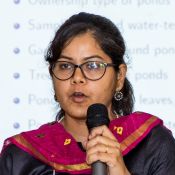
Speaker: Saheli Bose, Centre for Quantitative Economics and Data Science, Birla Institute of Technology, Mesra
Date: 19 September 2023
Time: 3.00 p.m (IST)
Please register in advance to attend the talk. After registering, you will receive a confirmation email containing information about joining the session.
Summary:
In this paper I study whether individual households’ waste disposal practice is associated with the average behaviour of the households’ peers or reference group. In absence of a formal waste disposal system and due to strategic complementarities, households have incentives to take actions increasing in the number of peers who take the same action. Using nationally representative data from rural India from two rounds, I find evidence of neighbourhood peer effects in waste disposal actions of households. The results show that in-group peer effects are higher among own caste members compared to out-group peer effects. There is heterogeneity across caste groups indicating different abilities of different caste groups to coordinate actions.
Speaker Biography:
Saheli is an Assistant Professor of Economics at the Centre for Quantitative Economics and Data Science at Birla Institute of Technology, Mesra. Previously she was a Postdoctoral Fellow at Centre for Studies in Social Sciences Calcutta. She did her PhD from Jadavpur University. Her research interests include Development Economics. Current research area focuses on WASH and household behaviour.
Previous Webinars
Reimagning Water Science, policy & Practice in India: Towards a Decolonized and Inclusive Paradigm
Please note this event has been postponed. You will be notified of the new date.

Speaker: Neha Khandekar, French Institute of Pondicherry, India
Date: To be notified
Time: To be notified
Please register in advance to attend the talk. After registering, you will receive a confirmation email containing information about joining the session.
Summary:
Dominant ways of doing science and practice of water in India have been established based on technocratic and colonial methodologies of water science. These methods involve water accounting principles that view rivers primarily as economic assets, subject to authoritative and controlling approaches. The ongoing climate crisis and grassroots resistance movements are revealing that the existing framework of water science and implementation is influenced by notions of masculinity and arrogance.
Throughout history, even the most advanced models in complex systems, physics-mathematics, engineering hydrology, and civil engineering designs have failed to adequately resolve conflicts over water and the inequities in its distribution at various geographical scales. Contrary to prevailing discourse, the physical sciences alone have not yielded definitive rules or solutions for effectively managing and governing the intricate interaction between moving waters and human labor.
Policy and practice often draws from the perspectives of multilateral organisations, financial institutions, and academic thinking originating in the global north. These sources tend to overlook the everyday political dynamics, lived experiences, and emotional realities of people at the grassroots level. Consequently, the process of generating knowledge production itself is disregarded, resulting in oversimplified narratives about water insecurity.
To reflect on the current paradigm and transform it, we need to create pedagogic tools for justice such as action research, humanities and critical thinking, along with communication, and activism; and nurture policy and practice spaces to welcome representation. To reshape the trajectory of water science and practice, making it more decolonized, inclusive, diverse, and fair- we also need to study institutions producing these dominant forms of knowledge to engage with them.
Transformation in the current paradigm of doing water science and practice requires exploration of pedagogical tools that promote critical thinking and justice. Visual arts, action research, humanities, critical thinking, and science communication can be some of these methods for inquiry and activism. Additionally, creating spaces in policy and practice that value diverse representation is crucial. To reshape the course of water science and practice, making it more inclusive, diverse, and equitable, we must also examine the institutions responsible for generating the dominant discourses and actively engage with them. This approach can hope to shift the trajectory towards a more decolonized and just way of research and practice and provide more agency to marginalised alternative narratives.
Speaker Biography:
Neha Khandekar is a researcher and policy advisor on issues concerning water management, and climate change. Her vision is to build a plural and diverse research, policy and practice space – one which promotes and respects diversity, equity and inclusion of all knowledge forms and all voices.
How good is our meteorological data to conduct climate change-based studies?

Speaker: Haider Ali, Newcastle University, The United Kingdom
Date: 17 Jujy 2023
Time: 3pm IST
Please register in advance to attend the talk. After registering, you will receive a confirmation email containing information about joining the session.
Summary:
Extreme events have increased recently and are projected to increase more in the future. Therefore, it is imperative to understand the drivers of extreme events for climate change adaptation and risk assessment. The uncertainty in understanding drivers and processes governing extreme events remains due to a poor understanding of thermodynamic and dynamic processes as well as data limitations. Due to the unavailability of sub-daily observations, studies rely on alternate sources like reanalyses, satellite or climate model outputs for their analysis. However, these alternate sources of data (precipitation and temperatures) poorly represent actual observations, which highlights the need for ground-based observations for robust analysis. Advancement has been made to collect the global sub-daily data to enhance the proper understanding of the change in extreme events.
The important question is “how good is our observational data quality-controlled?” to trust them for conducting such studies. In this talk, I shall discuss the global sub-daily rainfall data (GSDR) and temperatures from HadISD, their quality control, and some examples of studies (developing extreme precipitation-temperature relationships; scaling) using them. I shall also conclude how better gauge measurement precision and quality control methods can provide us with robust scaling results.
Speaker Biography:
Dr. Haider Ali is a Research Associate and RENKEI ECR fellow in the School of Engineering at Newcastle University. He has around five years’ experience in engineering and environmental hydrology in research with a focus on understanding the effects of climate change on extreme rainfall events and flooding. His research interests include trends, variability and physical understanding of changing extreme events, temperature scaling, monsoon systems, design flood estimation and water resources management. Developing methods for understanding the extreme precipitation and temperature relationships (scaling) using quality-controlled sub-daily precipitation data has improved physical understanding of global rainfall climatology and resulted in several high-quality publications. This work was featured twice as Editor’s Highlights (2021 and 2022 respectively) on Eos. Haider is also interested in climate impacts and risk, working on the INTENSE (global intense rainfall and drivers), FUTURE-DRAINAGE (flash flooding) and Hydro-Climatic Projections (CMIP5 downscaling) projects. He is currently working on the GCRF Living Deltas project, improving the understanding of the change in tropical cyclone activity and monsoon over the South-east Asia Deltas. He also manages the logistics for the analysis and climate modelling advice for the Living Deltas Hub. He has a h-index of 13 (Google Scholar) from ~15 ISI-cited publications. His research work can be accessed through: https://scholar.google.co.uk/citations?user=o0EY7boAAAAJ&hl=en&authuser=1
Techno Politics of drinking water supply in Rural Southern Bihar

Speaker: Amit Srivastwa, Ambedkar University Delhi, India
Date: 19 June 2023
Time: 3pm IST
Please register in advance to attend the talk. After registering, you will receive a confirmation email containing information about joining the session.
Summary:
Rural drinking water policies more often claim to provide access to adequate and safe drinking water to rural households. Existing literature in water governance studies employs the question of scarcity, access and conflict, power and hierarchy, and materiality embedded in water. However, water in the neoliberal era has been largely negotiated through technologies and infrastructures introduced by varieties of state, non-state, and transnational institutions under the global, national, and regional imaginations of development. These technologies and infrastructures are meant to provide universal access to safe and clean drinking water on time. Therefore infrastructural governance becomes an integral part of water governance. The materiality of water and infrastructure shapes access to safe drinking water; however, biophysical, geographical, historical, spatial, temporal, and social characteristics of water and infrastructure enable or restrict drinking water service provision in everyday life.
In this given context, this research explores the changing nature of rural drinking water services in a fluorosis-affected village in southern Bihar, a site for an internationally funded project to supply safe drinking water. This paper examines the role of drinking water infrastructures in shaping the landscape, resource accessibility, social and spatial conditions, and relationship among households and local state actors. Through analyzing multiple drinking water interventions in the study village, this paper tries to understand the notion of uneven social, spatial, and power arrangement over access to drinking water. This study uses mixed methods to understand the production of interactions, negotiations, and contestations over drinking water. It further uses techno-politics framework to examine infrastructures as assemblage and configuration.
Speaker Biography:
Amit Kumar Srivastwa is a Doctoral Scholar in the School of Human Ecology at Ambedkar University Delhi. He joined the School in 2019 and working on the intersection of political ecology, STS (Science and Technology Studies), and critical geography studies. His works explore the ‘Techno-Politics of Drinking Water Infrastructure in Rural South Bihar.’ He explores the notion of modern infrastructure in a rural area through technical, technological, societal, spatial, temporal, and natural characteristics. Amit has been engaging in this field area since 2017.
Upcoming Publication: Srivastwa, A, K., and Kabra, A. (2023). ‘Socio-Spatial Infrastructures: Drinking water supply and formation of unequal socio-technological relations in rural southern Bihar’. In Ecology, Economy, and Society – the INSEE Journal, Edition – Political Ecology.
Understanding Water Consumption and Sufficiency in Urban Mountain Towns
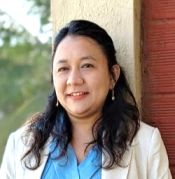
Speaker: Rinan Shah, Ashoka Trust for Research in Ecology and the Environment (ATREE), India
Date: 22 May 2023
Time: 15:00 – 16:00 hours IST
Please register in advance to attend the talk. After registering, you will receive a confirmation email containing information about joining the session.
Summary:
A water scarcity conundrum exists in the case of Darjeeling town in the Eastern Himalayan Region of India where there is scarcity among abundance. This paper inspects the manifestation of water scarcity at a household scale using the two major framings of water scarcity – objective or norms-based and subjective or perception-based. Are Darjeeling households really water scarce? If so, who and why? What are the water availability limits and their experiences of it? As an exclusive dependence on municipal supply is not enough to meet basic water needs, communities in urban settlements of the developing world create water bundles from a combination of available sources which are in turn dependent on a variety of factors such as socio-economic status and the spatial location of households, among many others. Creation of a household water bundle by communities through complex interactions with these institutions illustrates the difficulties they face in acquiring a basic amenity such as water. The composition and proportions of a water bundle are primarily dependent on the financial resources available to a household, and its spatial proximity to the water sources. The quantity of water varies according to the sources that make up the water bundle. Water bundles and daily per capita consumption is primarily determined by homeownership and spatial location. Lack of land tenure does not allow informal households to connect to the formal network. Having a water bundle with a single water source does not always imply sufficiency but also a lack of alternatives. The difficulty in creating a sufficient quantity of water causes physical and mental stresses forcing the households to take up coping mechanisms. The lack of basic entitlement, sufficient water in this case, culminates into the making of the residents as disconnected citizens of the state.
Speaker Biography:
Rinan has a PhD from Ashoka Trust for Research in Ecology and the Environment. Her areas of interest encompass the environment and development in the political-economic context. She is currently studying the manifestation of domestic water scarcity in urban mountain towns of the Eastern Himalayan Region. She was a Research Fellow under the National Mission on Himalayan Studies, is a contributing author to the Intergovernmental Panel on Climate Change Working Group II Sixth Assessment Report and is a member of the Indian Youth Water Network.
Sustainable Transformation Pathways for India: The case of food and water
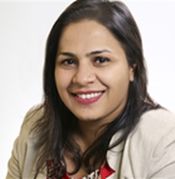
Speaker: Vartika Singh, IFPRI, New Delhi and Indian Institute of Management, Ahmedabad, India
Date: 17 April 2023
Time: 15:00 hours IST
Please register in advance to attend the talk. After registering, you will receive a confirmation email containing information about joining the session.
Summary:
Agricultural production in India is highly dependent on existing water resources. India stands out in the food-water nexus as the country that withdraws and consumes the largest volume of freshwater resources globally, mostly for the production of basic staple crops of rice and wheat that account for more than 80% of total agricultural water use. Rapidly receding water levels cause concern for future agricultural production and require urgent measures to manage water withdrawals for agriculture. In India, excessive production and consumption of cereal crops, overdependence of milk products and an increased consumption of ultra-processed foods has been a concern. Despite agricultural production growing six-fold in the last five decades, India continues to face high levels of malnutrition. In light of this information, we assess policy instruments to reduce pressures on water resources, while at the same time, limiting adverse impacts on water intensive cereal production systems, inclusive of land-use changes and economic welfare. We also assess the role of dietary changes on environmental impacts. With multiple policy tools, we analyze the implications on key environmental indicators including land, water, GHG emissions and biodiversity. Our results offer insights into the different mechanisms that these policies drive, and trade-offs on important agroeconomic indicators and offer the choice for climate change adaptation decision-making based on other factors such as implementation costs.
Speaker Biography:
Vartika Singh is Senior Research Analyst in the Environment, Production and Technology Division of IFPRI in New Delhi and Senior Research Officer at the Indian Institute of Management, Ahmedabad, India. Vartika is currently pursuing her PhD from Humboldt University in Berlin, Germany and is guest researcher at the Potsdam Institute for Climate Impact Research. Her interests include CGE and PE modelling to assess integrated assessment of water, energy and climate policies. These activities form her PhD dissertation work as well as the Nexus-Gains Initiative by the CGIAR. She has previously worked on applied behavioral microeconomic experiments to address barriers in sustainable intensification of agriculture, as part of the Cereal Systems Initiative for South Asia project. She holds a Master’s degree in Development Studies from Tata Institute of Social Sciences in Mumbai, India and a Bachelor’s in Economics from Hindu College at Delhi University, India.
Who benefits from piped water supply? Empirical evidence from a gendered analysis in India

Speaker: Ashish Kumar Sedai, University of Texas at Arlington, USA
Date: 20 March 2023
Time: 09:00 hours IST
Please register in advance to attend the talk. After registering, you will receive a confirmation email containing information about joining the session.
Summary:
The disproportionate burden on women of water collection and distribution in the household in developing economies calls for a study on the relationship between piped water supply and gender differences in employment, women’s health, child health and education. I use spatiotemporal data from the largest gender disaggregated human development survey in India, 2005–2012, and carry out econometric analyses using individual fixed effects, village fixed effects and instrumental variable regressions to evaluate the effects. Results show that household access to piped water increases the likelihood of wage/salary employment by 11 percent, and annual earnings increase by 14 percent for women, comparatively higher than men, but only in rural areas. In urban areas, there is no effect of pipe water on women’s employment. With piped water, women’s self-reported health, child’s health and education outcomes improve. The study recommends evaluating the social demand curve for piped water supply, and the consideration of piped water supply as necessity, as part of a broader strategy to reduce gender differences.
Speaker Biography:
Ashish Kumar Sedai is an Assistant Professor of Economics at the Department of Economics, College of Business, University of Texas at Arlington. He completed a Ph.D. in Economics at Colorado State University (CSU) in 2022, master’s in economics from Jawaharlal Nehru University, Delhi, India and worked as an Assistant Professor of Economics at the University of Delhi from 2012-2017. He currently is a Research Associate at the Centre for Applied Macroeconomic Analysis, Australian National University and is a contractor for development research at the Asian Development Bank Institute. He specializes in labor, health, gender, and development research and has received the prestigious Warren Samuel’s prize from the Association for Social Economics for his research on “Gendered effects of piped water in India”. Other notable works include the analysis of electrification in developing economies and its impact on household welfare and women empowerment, informal finance and women empowerment, political institutions and pollution, care shocks and time use. His research papers have been published in Journal of Economic Behaviour and Organization, Energy Economics, World Development, The Energy Journal, Economics of Ageing, Journal of South Asian Development, and Economic and Political Weekly. He has also worked as a consultant, specializing in applied economic development research for the World Bank, United Nations and 2M Research.
Thermal exposure of workers and outdoor microclimate in informal mixed-use areas in Kolkata
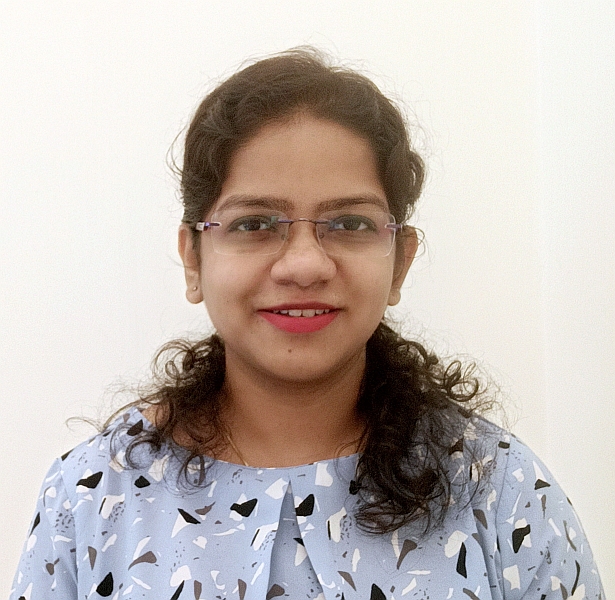
Speaker: Shreya Banerjee, Post-Doctoral Research Fellow, Singapore Management University
Date: 20 February 2023
Time: 15:00 -16:00 hours IST
Please register in advance to attend the talk. After registering, you will receive a confirmation email containing information about joining the session.
Summary:
Developing countries are most susceptible to climate hazards owing to infrastructure inequality and resource constraints where informality exasperates the situation even more. Kolkata, a major Indian city witnesses significant residential and commercial informality. Outdoor spaces are used widely for various purposes such as temporary shops, food stalls, meeting area etc in these informal neighbourhoods and streets are encroached to generate spaces for economic activities. In my doctoral research, I investigated the outdoor thermal condition in such informal mixed-use spaces in hot-humid city of Kolkata. We conducted thermal comfort field campaigns in three informal neighbourhoods in summer and winter- one pottery neighbourhood, one flower market and one retail market. We employed regression models to evaluate relative importance of various climatic and non-climatic variables in shaping the human thermal perception. We further employed Computational Fluid Dynamics (CFD) tools to assess the impact of temporary encroachments on the street level thermal performance. Our results show various physiological (acclimatization and metabolism), psychological (expectation of weather), and behavioural (beverage intake) factors impact the bodily heat exchange and thermo-regulatory process of the workers. Our study reports the respondent neutral thermal ranges (they feel neither discomfort, nor comfort) are higher compared to studies conducted in other parts of the world. We further report, presence and form of the encroachments impact the thermal performance of the streets. Inferences obtained from our study is useful in proposing various infrastructure strategies to mitigate heat in the informal urban contexts.
Speaker Biography:
Dr. Shreya Banerjee is a Post-Doctoral Fellow in Singapore Management University in the project Cooling Singapore 2.0. Her research focuses on human thermal exposure, heat mitigation and adaptation in outdoor spaces, climate action policies, and resilient settlements. Shreya pursued her PhD from IIT Kharagpur between 2017-2021, during which she was also a visiting scholar at Arizona State University. She was awarded the BHAVAN fellowship from IUSSTF jointly sponsored by DST, Government of India (GoI), and US Department of State in 2019. Shreya completed Master of City Planning from IIT Kharagpur and Bachelor of Architecture from IIEST Shibpur. She has published in journals such as “Science of the Total Environment”, “Urban Climate”, “Landscape and Urban Planning” and “International Journal of Biometeorology”. Shreya is in the invited expert panel of Ministry of Housing and Urban Affairs, GoI, and German Agency for International Cooperation (GIZ India) for the “Development of Design Standard for Thermally Comfortable Affordable Homes”. She is member of different professional bodies such as International Association of Urban Climate (IAUC), European Geosciences Union (EGU).
Achieving development goals with clean energy transitions

Speaker: Anjali Sharma, Assistant Professor, Azim Premji University, Bangalore.
Date: 16 January 2023
Time: 15:00 -16:00 hours IST
Please register in advance to attend the talk. After registering, you will receive a confirmation email containing information about joining the session.
Summary:
Clean energy transitions are particularly challenging for developing countries, especially toward their development goals, such as poverty alleviation and employment generation. While a strand of academic literature finds that clean energy transition can create new jobs, Anjali, in her talk, will discuss the unequal distribution of job gains and losses from power sector decarbonization in the context of India, using an analytical framework to examine the changes in the magnitude as well as the location of jobs due to clean energy transitions.
She will also explore the case of decarbonizing the transport sector through electric vehicles (EVs) – the regional disparities in environmental and health gains of EVs, focusing per se on the emissions from the vehicle manufacturing sector, in contrast to the usually available results from vehicle operations. Estimates from Anjali’s research reveal that overall air pollution and related deaths can increase in scenarios with a higher share of EVs because of the increase in manufacturing-related emissions. These increases will likely be concentrated in limited locations, such as the auto manufacturing hubs.
Speaker Biography:
Anjali Sharma is an assistant professor at Azim Premji University, Bangalore. Her work aims to inform just and equitable policies for a low-carbon world. Her current research project examines whether and how electric vehicles can worsen health inequities across different social groups and geographies. For her doctoral dissertation, she modelled the employment impacts of power sector decarbonization in India and analyzed the distribution of job changes across regions and skill levels. Her research interests include climate change and development, just transitions, green jobs, and electric vehicles.
Geographies of Maladaptation: Jalyukt Shivar Abhiyan and the Reproduction of Water Insecurities in Drought-Prone Maharashtra

Speaker: Sameer Shah, Assistant Professor of Climate Adaptation, School of Environmental and Forest Sciences, University of Washington, United States of America.
Date: 19 December 2022
Time: 9:30 -10:30 IST
Please register in advance to attend the talk. After registering, you will receive a confirmation email containing information about joining the session.
Summary:
From 2014 to 2019, the Government of Maharashtra’s decentralized water conservation and harvesting campaign, Jalyukt Shivar Abhiyan, is reported to have made 25,000 villages “free” from agricultural drought. Yet, the campaign has attracted intense criticism for water conservation’s “unscientific” nature, adverse ecological impacts, and skewed preference for employing mechanical contractors over village residents in waterworks development. The Comptroller and Auditor General of India, in 2020, found that despite 6.30 lakh completed water harvesting and conservation projects, the campaign had “little impact in achieving water neutrality and increasing groundwater level” in drought-affected villages. This talk will demonstrate two forms of maladaptation hindering equitable water security: (i) a socio-ecological maladaptation with key state-sponsored and subsidized infrastructures under the campaign actively deepening the inequities, unsustainability, and inefficiencies of water use in drought-hit villages, (ii) a relational maladaptation with agricultural drought reconfiguring the state-society relationships, wherein state officials occlude their responsibility in climate welfare by framing environmental features, such as the climate, geology, and topography, as reasons for the drought. By considering these diverse forms of maladaptation, this talk will explore the various pathways for fostering sustainable, equity-based water security in the context of climate change and variability.
Speaker Biography:
Dr. Sameer Shah is an environmental, social scientist with expertise in the human dimensions of climate change vulnerability. His research aims to understand the socio-economic and political processes by which climate change unevenly impacts people, and their water, food, and energy resources. He is especially interested in analyzing the equity, justice, and sustainability outcomes of climate adaptation and disaster response at multiple scales. Dr. Shah is the John C. Garcia Assistant Professor of Climate Adaptation in the School of Environmental and Forest Sciences at the University of Washington. He has (co)authored seventeen peer-reviewed articles and was awarded the Governor General’s Gold Medal (UBC, 2015) and the Pagani Award for Outstanding Doctoral Dissertation (UBC IRES, 2021) for his research on climate adaptation, water insecurity, and livelihoods.
Colonizing the rains: Narrating policies of drought-protection in the colonial archive to reflect on the shadow they cast in the present

Speaker: Arianna Tozzi, PhD Researcher, University of Manchester
Date: 29 August 2022
Time: 16:00-17:00 IST
Summary
In this talk Arianna will engage with a critical reading of the British colonial archive in the Bombay Deccan to trace how policies to protect this region from droughts paved the way for today’s mentality favouring an irrigated model of agriculture while relegating rainfed areas to spaces of marginality. Enacting a ‘water world’ grounded on linear and predictable flows, she will describe how colonial policies for drought-protection rearranged existing human-water relations and divided the Deccan along an irrigated-as-protected and rainfed-as-unprotected logic. Yet, the expansion of this colonial hydro-politics was not a seamless process. Encountering a world that followed geographies of water ‘as precipitation’ created unexpected moments of friction, blurring the partition envisioned by engineering plans. The colonization of the rains thus speaks for that contested and negotiated project, whereby certain water worlds were made present, and real while others discarded, and made less real.
Given the preoccupation of the widening gap between irrigated and rainfed areas in the context of the agrarian crisis and climate uncertainties, the talk wants to stimulate a reflection on how existing water management practices may unwittingly reproduce practices of rainfall colonization, unable to value the diversity and dynamism of rainfed socio-ecologies. Arguing for the need for policies to confront their power to strengthen certain water worlds at the expense of others, the talk will reflect with the audience on what it would mean to enact decolonial water management practices grounded on the rainfall.
Speaker Biography
Arianna Tozzi is a PhD researcher in Human Geography at the University of Manchester. In her research she uses feminist and decolonial approaches to unpack the intersecting impact of climate change, development policies and the processes of rural agrarian transformation in rainfed areas of Maharashtra. Before starting her PhD, she lived in Pune (India) where she worked as a researcher affiliated with the University of Minnesota on projects studying the impacts of solar mini-grids for rural electrification from a gender and governance perspectives.
This talk is based on a paper she recently published with Geoforum, which can be downloaded at the following link: https://www.sciencedirect.com/science/article/pii/S0016718522001464
Making Indian Agriculture Resilient to Climate Change

Speaker: Dr. Balsher Singh Sidhu, Postdoctoral Research Fellow, Institute for Resource, Environment, and Sustainability, UCB Vancouver
Date: 19 September 2022
Time: 9:30 -10:30 IST
Summary
Agricultural production is sensitive to both short-term weather variability and long-term climate change. Predicting crop yields as a function of climate is becoming increasingly important due to a rapidly changing environment. In this talk, Balsher will discuss and contrast the regional and crop-wise yield sensitivity to climate change in India, including the predicted yields for different crops till 2100. He will then explore the role that irrigation – under different availability scenarios – can play in reducing yield vulnerability in the context of increasing variability in precipitation and the rising probability of droughts.
High-quality data and advanced computational facilities have led to various sophisticated models for climate projections in recent years. The Coupled Model Intercomparison Project Phase 6 (CMIP6) framework is one of those. Balsher has applied this framework for his yield projection exercise, where variables such as temperature, frequency and volume of precipitation, soil moisture, etc., are combined with the climate projections for four different shared socioeconomic pathways from 13 Global Climate Models (GCM) under the CMIP6 framework. This talk will bring some interesting insights into the climate-driven vulnerabilities of Indian agriculture and engage the audience to deliberate on some of the likely adaptation and mitigation strategies in this regard.
Speaker Biography
Dr. Balsher Singh Sidhu is a postdoctoral research fellow at the Institute for Resources, Environment, and Sustainability, UCB Vancouver. His research interests lie at the intersection of climate change, food systems, and sustainable resource use. He uses advanced statistical and machine learning methods to understand the relationship between climate change and agriculture. His doctoral research was funded by a Vanier Canada Graduate Scholarship, wherein he developed crop yield models for various crops in India to predict yields till 2100 under multiple emission scenarios. He is currently analyzing land use-based strategies for mitigating climate change.
Dr. Balsher was a contributing author to the Water chapter in the Sixth IPCC Assessment Report (Working Group II). He has also worked as a short-term consultant for the World Bank on the Atlas of Sustainable Development Goals 2020. Previously, he held undergraduate and master’s degrees in Civil Engineering from the Indian Institute of Technology Delhi and the University of Toronto, respectively. He can be reached at balsher.sidhu@ires.ubc.ca.
Understanding coal transitions in India: Challenges and the way forward

Speaker: Dr. Sandeep Pai, Senior Research Lead, Centre for Strategic and International Studies, Washington D.C., United States of America.
Date: 17 October 2022
Time: 9:30 -10:30 IST
Summary:
The world has already warmed to over 1°C above pre-industrial levels, mainly due to burning fossil fuels such as coal. This is causing ever-increasing rates of climate-related events such as floods, droughts, and wildfires. Any steps to keep global warming well below 2°C, a target enshrined in the Paris Agreement, would require a rapid reduction in the use of fossil fuels—particularly coal. Although some member countries of the Organization for Economic Cooperation and Development (OECD) have already planned to phase out coal-based power, attaining the Paris Agreement goals would require concerted efforts of the large coal-dependent emerging economies, like India, to reduce their long-term dependency on coal. But such an energy transition presents an enormous challenge for India both in terms of deployment of large-scale clean energy sources and managing the socio-economic impacts of the transition on coal-dependent states and communities. In India, transitioning from coal power is likely to have an outsized effect on six coal-dependent states where coal production is heavily concentrated. Thus, a comprehensive policy and national action plan are required focusing on the technological deployment and securing the future livelihoods of millions of coal workers and their community members.
Speaker Biography:
Dr. Sandeep Pai is the senior research lead at the Center for Strategic and International Studies (CSIS), Washington D.C. His expertise spans energy transitions, coal sector dynamics, and just transitions. Previously, Sandeep worked as a journalist for many years with leading Indian newspapers such as the Hindustan Times and Daily News & Analysis. In 2016, he was felicitated with the Ramnath Goenka Award for Excellence in Journalism, India’s most prestigious journalism award. He holds a Ph.D. in resources, environment, and sustainability from the University of British Columbia and a joint MSc in environmental sciences and management from Lund University, Sweden, and Central European University, Hungary.
Effective knowledge brokering for collaboration across knowledge, policy, and practice for water-resilient food systems
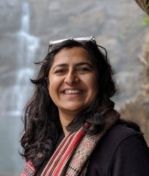
Speaker: Shuchi Vora, Global Resilience Partnership
Date: 21 November 2022
Time: 16:00 -17:00 IST
Please register in advance to attend the talk. After registering, you will receive a confirmation email containing information about joining the session.
Summary:
Water is the face of climate change, and nowhere is it felt more than in the global food systems. However, practitioners and researchers across food and water often find it challenging to articulate the critical role of water in food systems and translate practice into research and policy effectively (and vice-versa) in the absence of frameworks and cases of knowledge brokering. This talk will use the Water-resilient Food Systems framing that has been recently published (Matthews et al., 2022) and highlight a case of knowledge brokering in Maharashtra, India.
Speaker Biography:
Shuchi Vora is a knowledge broker who has worked as a practitioner at the interface of knowledge, policy, and practice. She currently works at the Global Resilience Partnership, where she leads a knowledge brokering and shared learning initiative called the Resilience Knowledge Coalition. She has worked on multistakeholder engagement for water in different forms at WWF and TNC prior to this role. She has master’s degrees from Oxford and TISS Mumbai, and an engineering bachelor’s from NIT Warangal.

